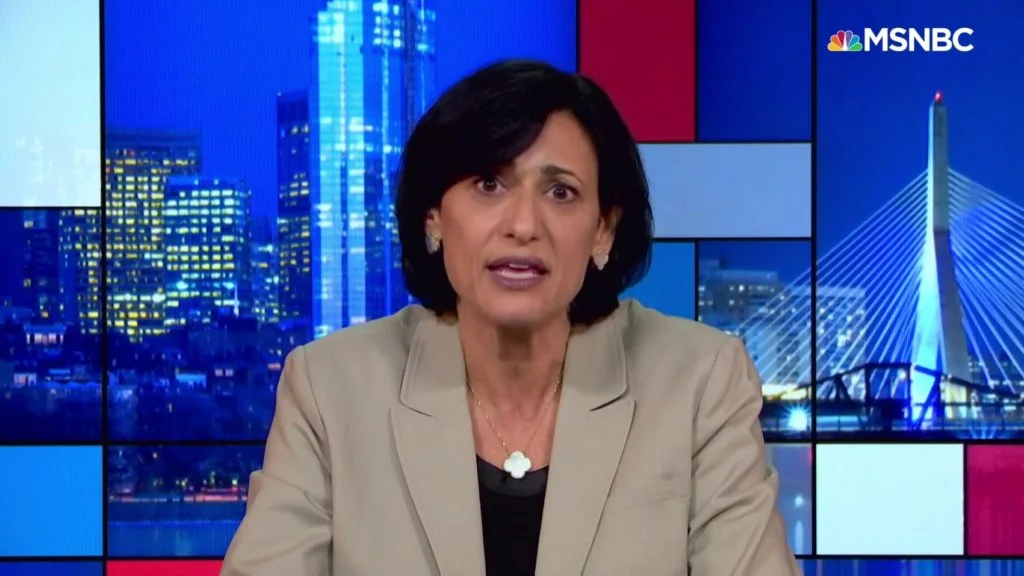This piece from The Daily Skeptic claims that the CDC director knowingly lied to the public because she knew that the COVID vaccines did not stop the virus even though she promoted mass vaccination.
What do we make of this one?
The sound byte is false, but the effects of the sound byte were worth the lie, and the people who were in the medical field knew this.
The assumption that “a vaccine gives 100% immunity or it is useless” is a false premise. The PR person may have given a false sound byte because saying words with enough context was being attacked by political zombies.
A vaccine based on mRNA (blueprints of part of a virus) were never intended for 100% immunity. It was mainly to make it so you weren’t hospitalized while the hospitals were full of normal hospitalizations (strokes, concussions, etc.), And guaranteed death to yourself or the person you displaced (that is why they said flatten the curve of intense vaccine free infections). Promotion of mass vaccination (even with the small risks associated with vaccination) was 100% the best choice for everyone that could. You could still infect people while infected with the real/live coronavirus.
I think that flu vaccines used to be a shot in the dark with 20% chance to be the dominant flu strain that grew/spread in an individual year. The only reason you didn’t hear about it was that flu infection doesnt result in hospitalization.
She didn’t lie, she exaggerated. The vaccine did stop most infections (at least before omicron), it just wasn’t enough to end the pandemic.
That’s right, it did.
Personally, I think she exaggerated because she thought the average citizen needed a simple, clear message rather than a nuanced one. There was a lot of uncertainty at that time.
Well, it does stop the virus in some cases. In others, it provides a good boost to immune response when infected. This helped to keep a large majority of vaccinated individuals out of the hospital when they got it (including myself). As we continue to watch the virus mutate and gain better immune-evading features, the efficacy of the previous iterations of the vaccine wanes. On top of that, the immune boosting potential of the vaccine wanes over time, making it less effective after a period (hence boosters).
This is all vaccine 101, and if someone can’t or won’t understand the basics of vaccines and biology, they aren’t going to care about any of this.
Even worse, if they are maliciously fabricating information (i.e. vaccinated people dying more than they are, vaccine side effects a la vaers, etc) then you are just playing into their hand to increase engagement and get eye balls on their nonsense.
Seatbelts don’t eliminate the possibility of dying in a car crash, but you should still wear one.
It’s a staggering display of stupidity that some people think vaccines must completely eliminate risk, or else they’re useless. The unredacted portion is just about how some people do get symptomatic COVID despite being vaccinated. Never mind that their symptoms are, on average, much milder than those of unvaccinated people, or that their chances of getting “long COVID” are much lower.
This is, in any case, the perspective of someone who’s never had to take any responsibility for any single thing in their entire life.
🤷
Bit of a weird statement. I thought it was common knowledge to most educated people at that specific time that vaccines in general are about symptom immunity, not contagion immunity.
Lowered symptoms directly effects spread rate when aerosol is the delivery method so this fact, plus many studies support the claim that vaccines did/do reduce the spread, but a bit off to claim it prevents you from carrying it.
Saying it outright immunizes people from carrying is weird then… Since there was so much data to support it immunizes/mitigates symptoms. I would suspect that perhaps if the disinformation was intentional that it was perhaps a way to push people to be more comfortable going to events and working in person? It was a very frustrating time. Wish it had never become political.
Sigh. On the one hand, I want, need and deserve rigorous honesty from science (and the panoply of public-facing health officials).
On the other hand, I don’t completely trust others to use that info wisely. Like: when Faucci said that N95 masking was unnecessary—and was actually trying to stall so that adequate PPE could be supplied to healthcare workers. If he hadn’t said that, would the general pubic have graciously stepped to the back of the line to wait for their turn to get masks? I doubt it.
But—if PPE works for healthcare workers, why doen’t it work for me? Or, if the highly touted flu vaccine merely dampens effects of the flu, why should I think this new miracle mRNA tech is going to reduce my chances of merely having milder Covid symptoms?
I don’t know, but it seems to me that this muddled messaging and the 20/20 hindsight decoding may actually be contributing to the science-denying BS going around. Don’t patronize me, I guess is what I’m saying.
I don’t think many people would disagree that the CDC did a pretty poor job of their public messaging.
Granted, it wasn’t easy to simplify what ever- evolving body of research was revealing about both the virus and the vaccines, but they really didn’t do themselves any favours by making confident pronouncements that were later shown to be incorrect.
It gave the conspiracy/antivax crowd a lot of ammunition.
What do we make of this one?>
That we probably should not take medical advice from garbage blogs dedicated to vaccine misinformation and climate change denials?





